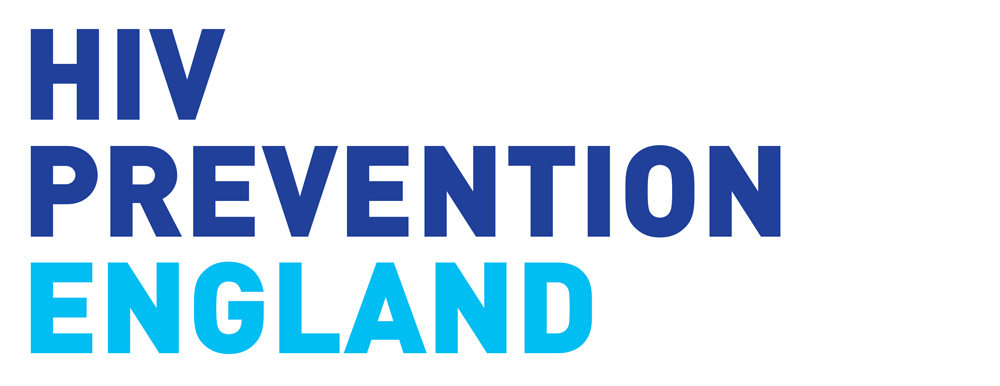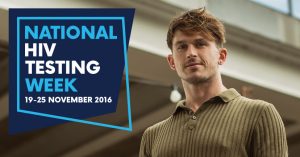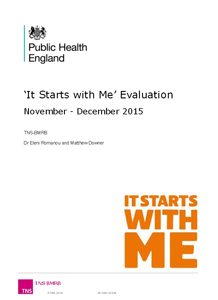The promotion of the national HIV home sampling service between 7 November 2016 and 8 January 2017 resulted in over 20,000 kits ordered, a substantially larger number compared to the same period in the previous year.
The national HIV home-sampling service
Since 2015, Public Health England (PHE) and Local Authorities have provided a national HIV home-sampling service for the most at-risk populations for HIV acquisition. For most parts of the year, the free test kits are available only in areas of England where local authorities choose to fund the service. However, during periods of national promotion, PHE fund the service across the whole of England.
The most notable period of national promotion is around National HIV Testing Week (NHTW), which occurs in November each year. HIV Prevention England (HPE) promote the home-sampling kits in the lead-up to, during, and after NHTW, encouraging people to order a kit online, take their own sample and return it by post to a laboratory for testing and results management. The test is highly accurate four weeks after infection, and almost 100 per cent accurate after eight weeks.
These kits differ from HIV self-testing kits, which do not need to be analysed in a lab: individuals get an immediate result that they can read themselves. The self-test is most accurate 12 weeks or more after infection.
Home-sampling kits ordered
The promotion in the period around NHTW 2016 resulted in 20,175 home-sampling kits ordered between November 7 2016 and 8 January 2017. This is 4,405 kits more compared to the same period in 2015-2016.
Table 1: home-sampling tests ordered during the full promotion period
| Description | Nov 2015 to Jan 2016 | Nov 2016 to January 2017 | Change |
|---|---|---|---|
| Number of kits ordered | 15,770 | 20,175 | up 4,405 |
| Number of kits returned | 7,985 | 10,421 | up 2,436 |
| Return rate | 50.6% | 51.7% | up 1.1% |
Table 2: home-sampling tests ordered during NHTW
| Description | 21 Nov to 29 Nov 2015 | 19 Nov to 27 Nov 2016 | Change |
|---|---|---|---|
| Number of kits ordered | 5,777 | 5,740 | down 37 |
| Number of kits returned | 2,895 | 3,081 | up 186 |
| Return rate | 50.1% | 53.7% | up 3.6% |
Results management
Test results are managed by a community-based organisation partner who provides further support and guidance on next steps. Tests give ‘reactive’ or ‘non-reactive’ results. Reactive results are further classified into ‘high’ and ‘low’ reactives, based on a particular cut-off index. While high reactives are more likely to have an HIV infection confirmed, all reactive results are immediately referred to appropriate services for further testing and clinical confirmation.
The previous year, 1.1 per cent of analysed tests were reactive and of these, 0.7 per cent were high reactives. This information can be looked at alongside HIV positive test results in other testing settings, including specialist sexual health clinics and general practice settings:
Table 3: results comparison by setting (PHE, 2016)
| Specialist sexual health clinics Positivity rate for service users (2015 data) |
0.3% (2,850/998,503) |
| Specialist sexual health clinics Positivity rate for service users (2015 data) |
0.3% (2,850/998,503) |
| National home-sampling service High reactive rate for service users (Nov 2015 – Sept 2016 data)* |
0.7% (128/18,270) |
* high reactive test results likely to be confirmed as positive
Currently, 85 local authorities have committed to implementing the national scheme. Considering the increasing demand for the service, the relatively high reactivity rate and the reasonable cost of the service, there is scope for broader action on making postal tests available and promoting them to communities and individuals who may be at a higher risk for HIV acquisition.
More information
NICE/PHE guideline on increasing HIV testing uptake
The full report for 2015-2016 on the national home-sampling scheme will be available from Public Health England in March 2017.


